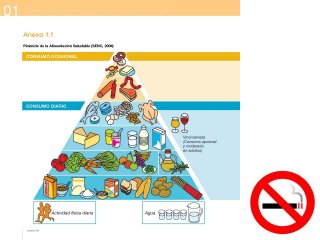
You will need to figure out how many steps you should take each day if you want to lose weight. Aiming to walk at least 10,000 steps per week can help you burn up to 3,500 calories each day. Not only can you burn calories but also your mood and overall well-being.
Walking 10,000 steps per hour burns 3,500 calories
Walking for at least 10kilo a day can help you lose weight. Walking for just 30 minutes a day can lower blood pressure, improve sleep, and reduce depression. A study conducted by California State University found a strong correlation between daily walking and people's moods. You can also get your daily vitamin-D dose by walking outside.

Walking at least 10,000 steps daily is enough to burn 3,500 calories per day and maintain your weight. Moving beyond that amount will require you do more calories-burning exercises than walking. An incentive to keep going is a fitness tracker that tracks your steps. Talking to a doctor is a good idea if you're having trouble reaching your goal.
It is good for your heart health
The American Heart Association recommends that adults get at least 150 minutes of moderate exercise a week. This amounts to about two and half hours of moderate exercise per week or about half an hour each day. Although this may seem like a lot of activity, it has been shown to improve your heart health. It doesn't need a fancy fitness tracker.
Although the benefits of increasing your step count are not immediate, they can be very beneficial. You need to walk for 30 minutes or more to make significant improvements in your heart health. Research by the Heart Foundation found that walking two minutes every half-hour can significantly reduce fat, blood sugar, and insulin levels. It encourages you also to find other ways that you can include exercise in your daily life.
It lowers your chance of developing certain illnesses.
Research has shown that 10,000 steps per day can reduce your risk of getting sick. This study was conducted by researchers from the Centers for Disease Control and Prevention and National Institute on Aging and other organizations. These results revealed that people who were more active in their daily lives had a lower likelihood of dying prematurely. The risk of developing dementia, heart disease and cancer was also lower when you take higher steps.

The study looked at 78,500 adults in the UK and linked step count data with health outcomes 7 years later. To measure their activity, participants wore wrist accelerometers. The data were linked to their health records and cancer and death registries.
FAQ
What can I drink during intermittent fasting in the morning?
Water should be consumed first thing in the AM. You feel fuller faster and have more energy throughout the day. You can add lemon juice or cucumber slices to enhance the flavor.
How to Create an Exercise Routine?
The first step is to create a routine for yourself. You should know what you will do each week and how long. This will help you plan ahead and prevent procrastination.
A second important thing to do is ensure you have lots of variety when it comes to your exercise routine. It is important not to get bored while exercising. This will cause you to lose interest and make it difficult for you to stick with it.
You also need to keep track of your progress. It's important to see how much weight you have lost or gained over time.
It's easy for people to lose motivation when they start by losing weight. However, it's much harder to stay motivated when you gain too much weight.
Find a healthy balance between losing weight and gaining weight. If you are unhappy with your current situation, you will be less inclined to exercise.
Why Exercise Is Important to Weight Loss?
The human body can be described as an amazing machine. It was built to move. Whether we are walking, running, swimming, biking, lifting weights, playing sports, dancing, jumping rope, riding our bikes, or just standing still, moving our bodies helps us stay healthy.
Exercise can also help you lose weight and tone your muscles. This helps you feel happier both mentally and physically. Exercise is an important part of weight loss.
-
Exercise can increase metabolism. When you're active, your body will use energy. Your heart rate increases, blood flow to your muscles and oxygen is absorbed from your lungs when you move. All of these activities are energy-intensive. You can burn calories more easily by exercising and increasing your metabolic rate. The amount of energy that your body burns during exercise is called the "burning calories".
-
Exercise reduces appetite. You will eat less when you exercise, and you will eat fewer calories during the day.
-
Strength is built through exercise. Muscle tissue requires more energy to function than fat tissue. You will be able to lose weight if you have more muscle mass.
-
Exercise releases endorphins. Endorphins are hormones which make you happy. They are released into the bloodstream during exercise. Studies show that endorphins actually block pain signals from reaching your brain. This provides a feeling if well-being.
-
Exercise boosts self-esteem. Exercise is a great way to boost self-esteem. This leads to healthier lives.
Small changes are the best way to lose weight. Try adding one of these tips to your routine today.
Statistics
- One study in 9 active men found that HIIT burned 25–30% more calories per minute than other types of exercises, including weight training, cycling, and running on a treadmill (18Trusted Source (healthline.com)
- A 12-week study in 20 women with obesity found that walking for 50–70 minutes 3 times per week reduced body fat and waist circumference by an average of 1.5% and 1.1 inches (2.8 cm), respectively (healthline.com)
- According to Harvard Health, it's estimated that a 155-pound (70-kg) person burns around 167 calories per 30 minutes of walking at a moderate pace of 4 mph (6.4 km/h) (5). (healthline.com)
- According to Harvard Health, it's estimated that a 155-pound (70-kg) person burns roughly 112 calories per 30 minutes of weight training (5). (healthline.com)
External Links
How To
How to Intermittent Fasting
Intermittent fasting is a dieting method where you normally eat one day per week, usually Monday through Friday. This is a way to cut down on calories while still getting enough nutrition. This is believed to help you burn more fat than if your meals were regular throughout the week.
The most popular form of IF is to limit calories to certain days. This means that you might skip breakfast every day and then indulge in whatever food you desire throughout the day. You could also choose three small meals instead of two large meals per day.
There are many forms of intermittent fasting. There are pros and con's to every type of intermittent fasting. Alternate Day Fasting is the easiest to begin because you don’t have to make significant changes in your life. However, some people find it difficult to stick to a strict schedule like this, so they might prefer to try other methods first.
If you want to try intermittent fasting, I suggest starting with alternate-day fasting. This will allow you to gradually transition into more extreme fasting routines without completely changing your lifestyle.